Before the age of viral dance challenges and auto-tuned hooks, there was music that taught, that lingered, that meant something. In homes across Eastern Nigeria, life lessons didn’t always come from a parent, sometimes, they flowed from the voice of a man strumming a guitar, speaking in proverbs. That man was Mike Ejeagha.
He wasn’t just a singer. He was a philosopher with a melody, a guardian of Igbo heritage, and a storyteller whose voice — now echoing beyond the grave — continues to remind us of who we are.
The Early Echoes of a Legend
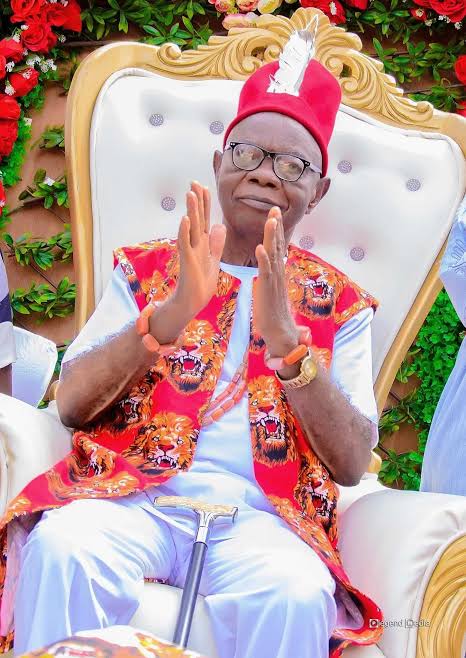 Born on April 4, 1930, in Imezi Owa, Enugu State, Mike Ndubuisi Ejeagha came of age in a Nigeria where tradition and modernity were in constant dialogue. His father worked in Enugu city, but young Mike remained deeply connected to his cultural roots, often playing ogene with friends, not knowing that this ‘child’s play’ would one day bloom into a powerful mission to preserve the Igbo soul through song.
Born on April 4, 1930, in Imezi Owa, Enugu State, Mike Ndubuisi Ejeagha came of age in a Nigeria where tradition and modernity were in constant dialogue. His father worked in Enugu city, but young Mike remained deeply connected to his cultural roots, often playing ogene with friends, not knowing that this ‘child’s play’ would one day bloom into a powerful mission to preserve the Igbo soul through song.
By 1945, he joined a group called the Coal Camp Boys, but it wasn’t until 1949, while working as a barber’s apprentice, that he first picked up a guitar, the instrument that would become his voice.
In 1950, his talent caught the eye of Joseph Ogbu, who welcomed him into his band. Not long after, the Nigerian Broadcasting Service offered him a slot on radio. From this came the iconic “Guitar Playtime,” a show that introduced his sound (mellow, wise, and unmistakably Igbo) to homes across the East.
Ejeagha’s career soared. He formed the Premier Dance Band, collaborated with legends, and recorded timeless songs like “The Unfortunate Lady” (1957), “Colliery Massacre” (1959), and “Ofu Nwanne” (1959). But even war could not silence his voice.
During the Biafran War, he abandoned the stage but not his mission. He continued to reach listeners through the radio program “Igbo Paly”, even as he fled from Enugu to Umuahia. After the war, he was invited by NTA in 1972 to create the cultural show “Akuko n’ Egwu” (Stories and Songs). It became a phenomenon. His name became synonymous with truth told through melody. “Akuko Mike Ejeagha” wasn’t just a show title, it was a cultural seal of authenticity.
A Voice That Taught as It Sang
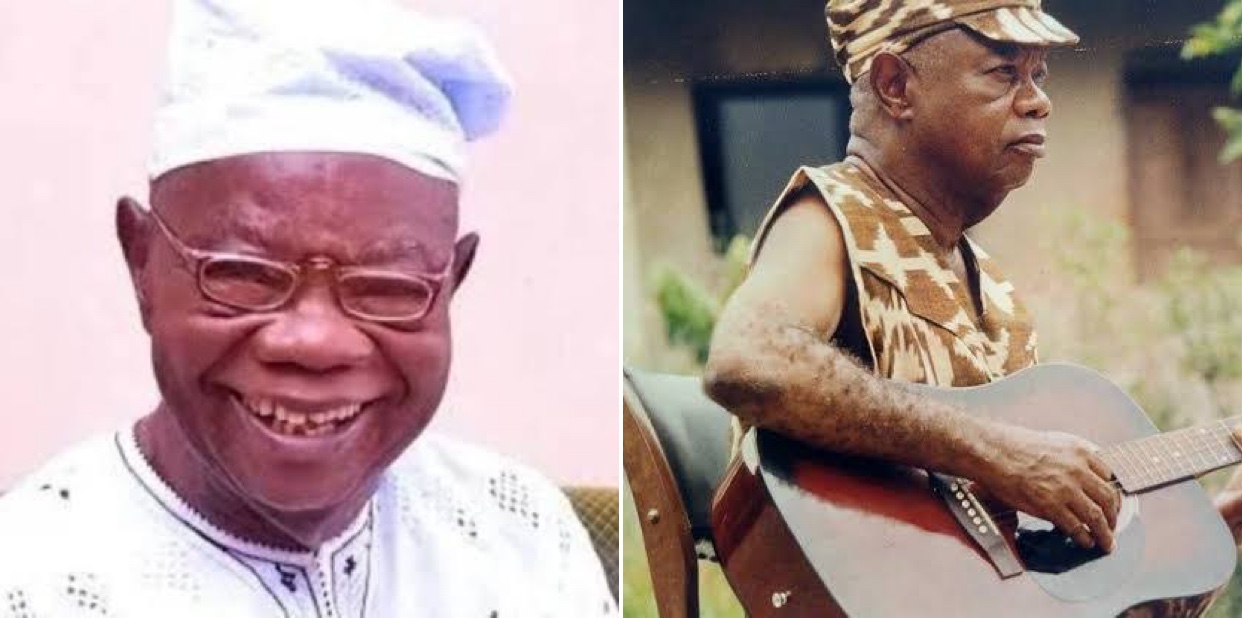
Unlike many highlife artistes of his time, Ejeagha did not chase glamour or romance. He chose a quieter, more enduring path — using music to teach. His songs were drenched in wisdom, layered with humour, morality, and the raw truths of life.
Whether it was “Ome Ka Agu”, “Ukwa Nwanyi Di Egwu”, or “Ikpechakwa-A ka-Kpe-E”, each track was a miniature parable. They were more than entertainment, they were lessons. And through them, Ejeagha became a one-man university of Igbo culture.
He recorded over 30 albums, worked with icons like Stephen Osita Osadebe, and served with the Nigerian Broadcasting Corporation, documenting traditional music with scholarly precision. He was a musician, but also a cultural archivist.
Even in his later years, younger artistes revered him. In 2018, singer Kcee visited to seek permission to sample his classics. And in 2024, a 1983 track titled “Ka Esi Le Onye Isi Oche” (known by fans as “Gwo Gwo Ngwo”) suddenly went viral, thanks to a playful TikTok dance challenge launched by skit maker Brain Jotter.
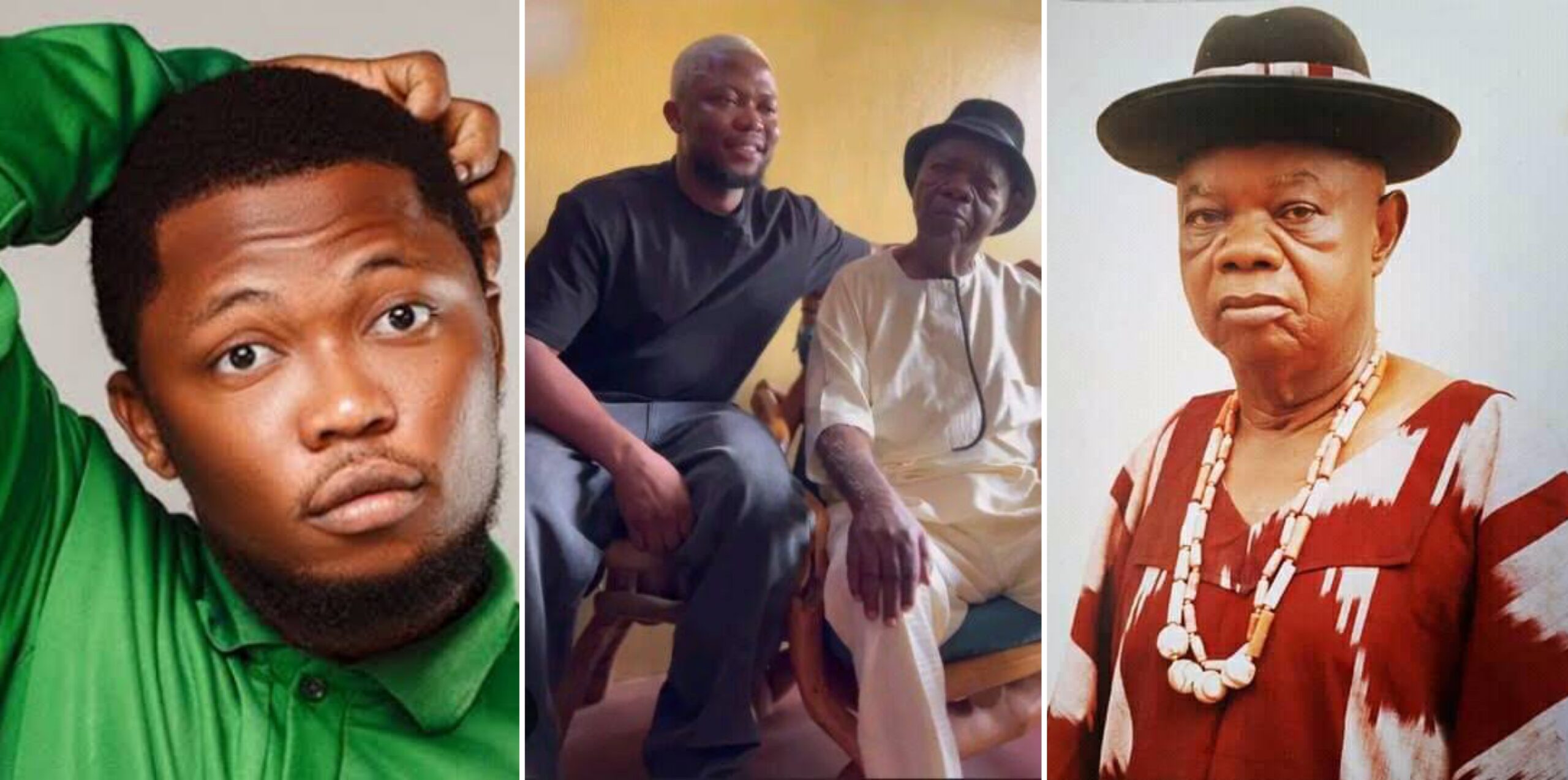
In an era ruled by fleeting trends, a 41-year-old folk song reemerged, reminding Nigerians of the timeless power of words wrapped in melody.
A Quiet Exit, A Loud Legacy
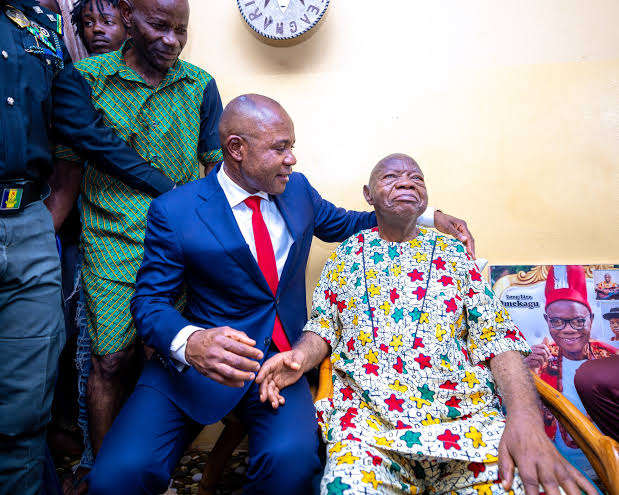
In June 2024, the Governor of Enugu State, Peter Mbah, renamed Abakpa Road in his honour. A fitting tribute to a man who had long walked the road of cultural preservation.
On June 6, 2025, Mike Ejeagha passed away at the age of 95 after a long battle with prostate cancer. According to his eldest son, Emma Ejeagha, he died at 32 Garrison Hospital, Enugu, and was buried just 24 hours later, as per his wishes:
“No embalming, no long delays.”
Even in death, he remained grounded as he always was in life.
He Sang So We Would Not Forget
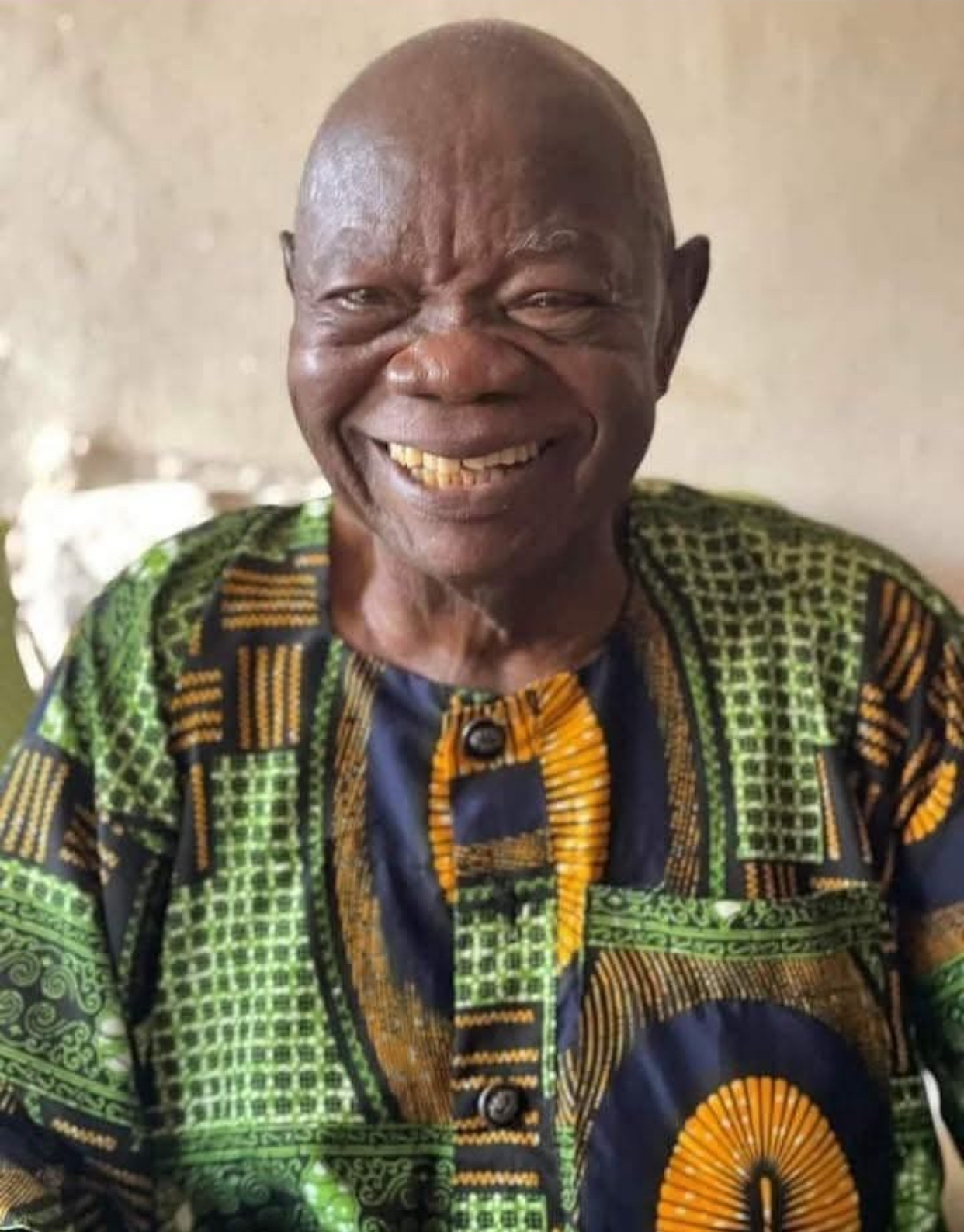
Mike Ejeagha didn’t chase stardom, yet he became a legend. He didn’t shout, but he was heard. His voice, soft but certain, continues to echo in family compounds, community halls, university archives, and now, on TikTok feeds.
He taught us that music is more than sound. It is memory, culture, and truth.













Leave a comment